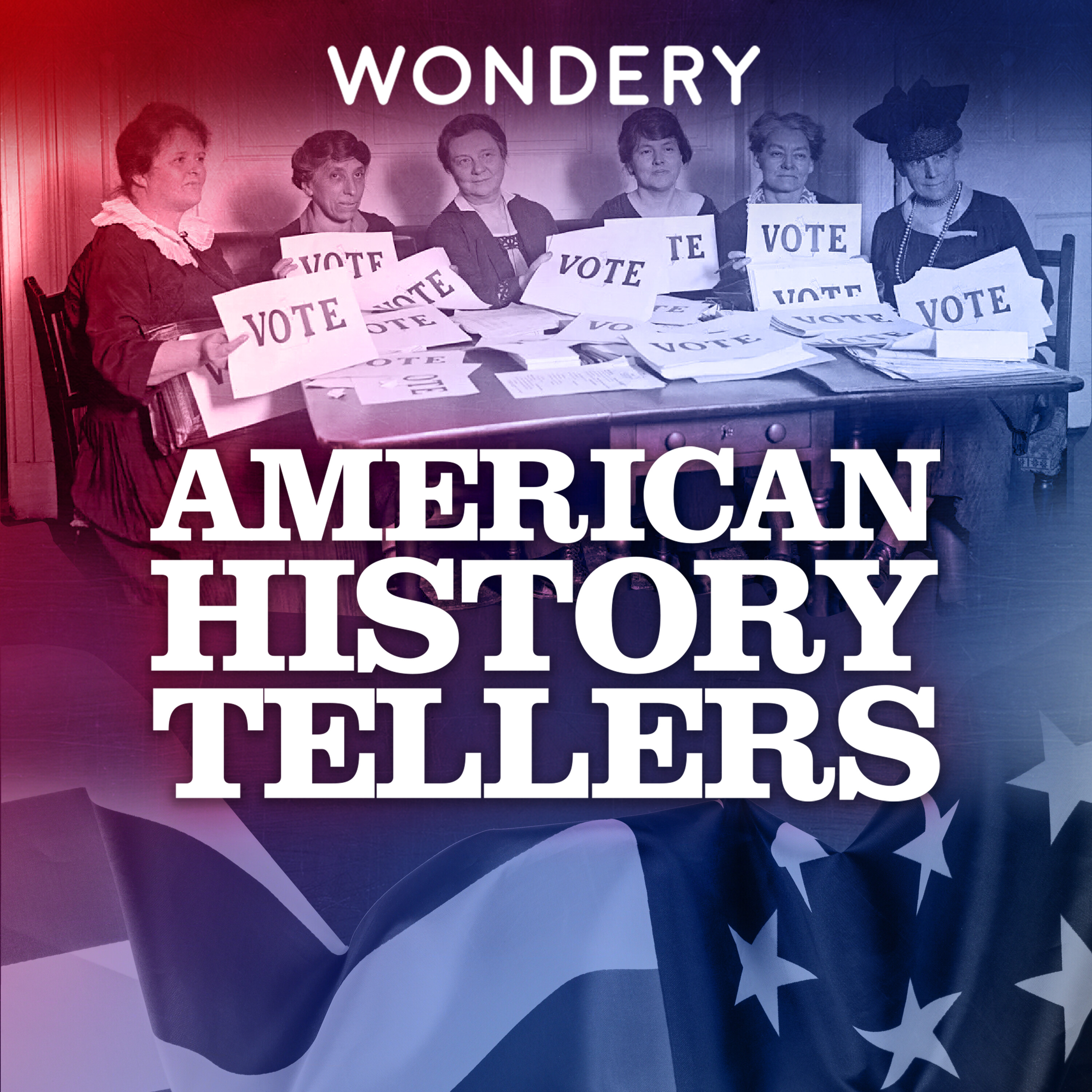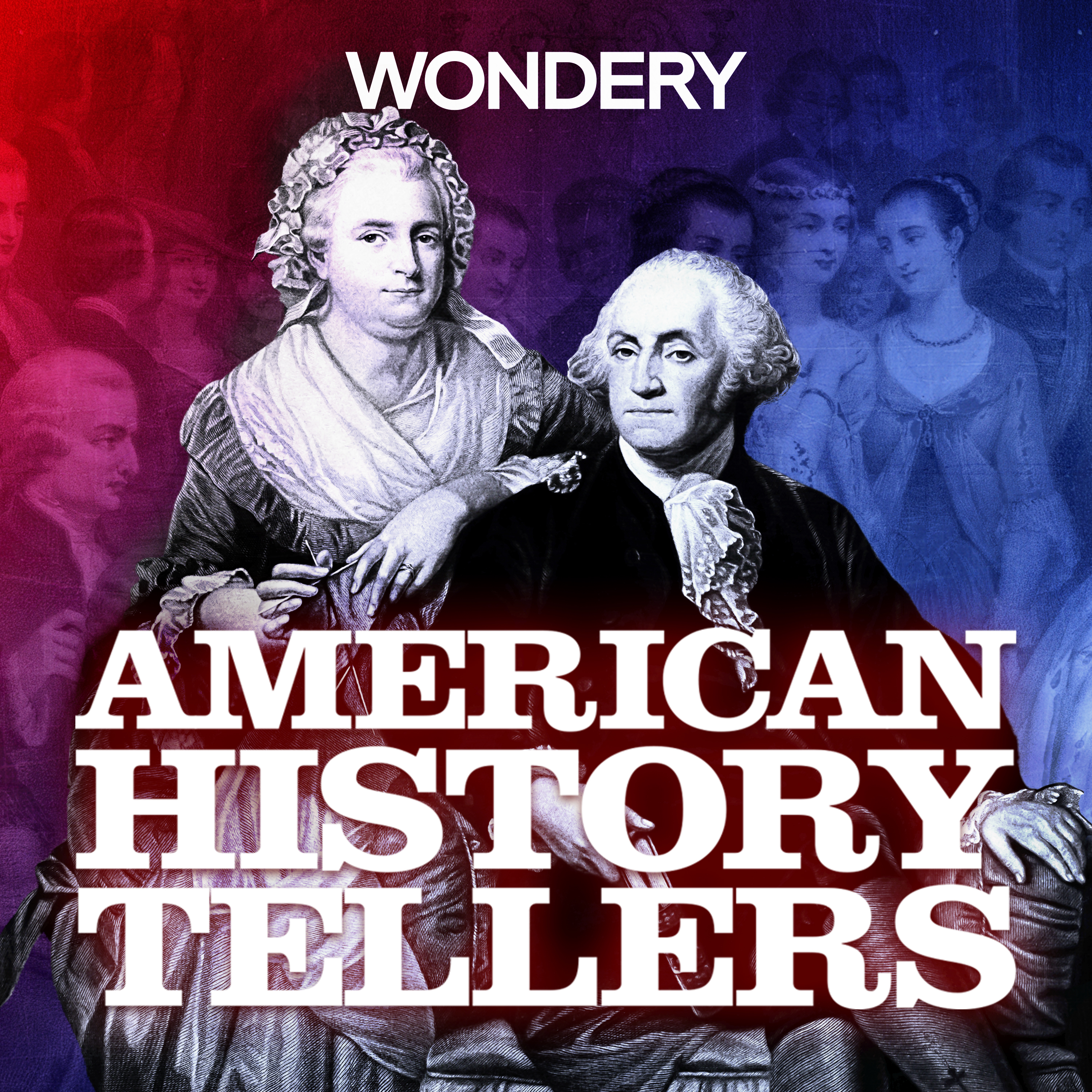
Listen Now: Reclaiming with Monica Lewinsky

American History Tellers
Deep Dive
- Monica Lewinsky's public image transformation
- The theme of "Reclaiming with Monica Lewinsky" podcast
- Focus on personal narratives and rebuilding after vulnerable moments
Shownotes Transcript
You've heard her name in headlines, during trivia nights, and as a punchline. Monica Lewinsky. She's been a major reference in pop culture since she was just 24 years old, when a scandal made her a household name overnight. But since then, she's fought to redefine her reputation. And now, she's ready to use her experience to encourage others to take back their power, too.
On her new podcast, Reclaiming with Monica Lewinsky, Monica leads honest and wide-ranging conversations about what it means to write your own narrative. Each week, guests share how they've rediscovered purpose, rebuilt relationships, and redefined success after their most vulnerable moments. A single incident can shape how the world views someone's life. It might be a public scandal, a viral moment,
a career setback, or a personal struggle thrust into the spotlight. Through raw conversations with actors, athletes, activists, and everyday people, Reclaiming with Monica Lewinsky explores what happens after the headlines fade and how to find your voice when the world thinks it already knows your story. You're about to hear a preview of Reclaiming with Monica Lewinsky. While you're listening, follow Reclaiming with Monica Lewinsky wherever you get your podcasts.
Hi everyone. For today's episode, I spoke with my brave and brilliant friend, Olivia Munn. We met over a decade ago and bonded over all things woo-woo. So crystals, astrology, we just got into deep, real conversation really quickly, which is kind of the way I like to do it. You probably know her as an actor and an activist. And if you're on social media, you'd also know her as the mom to adorable Malcolm and May.
Because Olivia and I are close, I knew about her struggle with breast cancer in real time, but to hear her heartbreaking and inspiring story in the details that she shared in our conversation, it meant so much to me and made me admire her even more. And for any fans of the newsroom, we went there too. So anyway, I hope you find something to connect to in our chat and thanks for joining us on Reclaiming. So let's get into it.
I knew that my friends and people in my life saw me as somebody that would fight back. And I had no idea. I truly had no idea that I...
could be manipulated and hurt that way that I wouldn't just get out of something that was dangerous to my psyche. So, so many, so many women, I think find themselves in, in different levels of relationships that are everything from psychologically and emotionally abusive to physically abusive. And, and I think find it hard to leave, you know what I mean? And I think people talk more now about,
you know, attachment styles and stuff. And so I look back on some of my relationships during what I call my dark decade. So kind of in between, um,
1998 graduate school, whatever. And my first person essay in Vanity Fair in 2014. And I think I look at it and maybe it's a story I tell myself, but I think about that the pain I was in staying in relationships with people who didn't value me, who talked to me a certain way that I didn't
allowed and accepted and kept going back for more. And I look at it and I think I was in a deeper pain and experiencing the pain in the relationship was actually easier. Like I knew I had to go through pain and that was easier than the pain of really what I was sitting on of both not only my experiences in 98, but
whatever, all those experiences before it that led to all of that. And so do you feel like, does that resonate at all or something different? No, I only had healthy relationships. Okay. Lucky bitch. Well, that one made up for all of it. It was a bad, bad period of my life. And
What I actually realized that I really want to teach my children and any friends of mine is that, you know, when they say like, oh, just go on the date. Like, you never know. Like, you might like them. You know, you'll at least learn what you don't like. I think for some people who are like subconsciously vulnerable, which is what I think I was because I had no idea I was like this vulnerable to anything.
to anything that had happened to me post that first date is that, um, if you feel in your gut, something's not right, then don't do that first date or get out right away because one day could take years off of your life. Not just the period that you're with the person, but if you're lucky enough to get out the years, healing yourself afterwards in that particular situation, um,
I had a therapist who I really loved and I know that she cared about me, or at least I thought she did. And I would constantly from the very beginning say, I don't, I don't know about this. I don't think this is the right, I want to get. And then it got worse and worse. I'd be calling her crying and be like, I got to get out. And I was like, help me get out. Like, help me. Like, wow. Like, and this is, this is shocking to people, but yeah.
But she encouraged me to stay. She thought that, you know, my quote unquote picker was off. And she would look at it as like, but this person on paper looked great. And when there was couples therapy, they knew how to present the right way. So yeah.
So then the stories I would tell seemed unbelievable. I think what's interesting to me is to just think about how you had this strong sense of self. You lost yourself in this relationship. What's so interesting to me is because I think this is in a short period of time, you were able to, it may have been
It may have felt like forever to you and may have seemed near impossible, but you actually stepped into a healing mode and found yourself again in what I think is like a very powerful and quick process.
quick, quick way, you know, in a really, and that's one of the things that I admire about you is that you are, you're so, that you have a focus. And I think that's part of, I think that's the good, the good side of the black and white, the good side of the kind of the fierceness, the going in and it's a decisiveness. Yeah.
That was just a preview of Reclaiming with Monica Lewinsky. Watch new episodes on YouTube or listen wherever you get your podcasts.